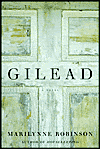Quoyle is a fat, hulking lump of a man with an odd-shaped head, a chin so large it more or less deforms his face, and a personality to match the disaster of his appearance.
This, then, is one of the protagonists of
The Shipping News.
At 36, after his philandering wife Ruby has died in an automobile accident with her current lover, Quoyle’s aunt persuades him to take his two young daughters sunshine and Bunny and move with her back to the family’s origin, Newfoundland, Canada. After an epic journey in survival, Quoyle and his family arrive in Killick-Claw at the family home—a broken-down wreck of a house that will shelter them but just barely; it needs massive repairs. Quoyle snags a job as a newspaper reporter for the local weekly, The Gammy Bird. He has two main responsibilities: dredging up stories and photos of bloody auto wrecks for the front page, and getting the list of ships in port from the harbormaster—in other words, reporting the shipping news.
An odd duck himself, Quoyle fits surprisingly well into what is a non-conformist community. His seemingly boring job at The Gammy Bird presents him with an unanticipated opportunity for real creative journalism, which he eagerly pursues. He strikes up unlikely friendships with his coworkers and neighbors. An attractive but reserved widow confuses Quoyle who does not understand, given his single experience, that love is not synonymous with pain. These, then, are the elements of the novel which does not “go” anywhere, really, once Quoyle, his closeted lesbian aunt (whose name we never find out), and his two daughters reach Newfoundland.
From this beginning, Proulx has crafted an unusual novel in which the second protagonist is Newfoundland itself—or rather, its way of life as evidenced through the beliefs, speech, actions, and cuisine of as iconoclastic a bunch of characters as you are likely to meet. Proulx uses language to terrific effect, incorporating idiomatic words and phrases that are usually—but definitely not always—revealed in meaning through the context (sooner or later). Clearly she found the cuisine of Newfoundland fascinating if weird and maybe even slightly repellent, just by the way she inserts local dishes into scenes. For example, breakfast “oatmeal with a side dish of bologna” in the Bawks Nest (and what is a bawk?—we never find out).
“Now who’s having the scallops,” said the waitress holding a white plate heaped with pallid clumps, a mound of rice, a slice of bleached bead.
“That was my idea,’ said the aunt, frowning at her pale food, whispering to Quoyle. “Should have gone to Skipper Will’s for squidburgers.” This is not the stuff of which tourist guides are made. While there are other examples, my favorite revolting meal remains the oatmeal with a side of bologna. Or maybe fried eggs being smashed into fish hash. Hard to pick my favorite virtual nausea.
One of the wilder aspects of
The Shipping News in the reporting done in the Gammy Bird. Its readers evidently are riveted by the weekly accounts of rape, child molestation, and other sexual exploits. There are so many—7-10 per week—that at times it seems as if 50% of the male population of that part of Newfoundland is actively engaged in sexual deviancy for the delight and delectation of the other 50% and the entire female population.
Another way in which Proulx uses language is in short, choppy sentences with oddly jarring juxtaposition of adjectives and nouns. It is extremely effective descriptively, giving startling images, at times, of the harsh landscape. Her use of language takes some adjustment on the part of the reader, but once you become accustomed to the rhythm or lack of it and the unusual thrown-together sentences, it becomes addictive.
Even the names have this jarring quality: Al Catalog, Ed Punch, Billy Pretty, Jack Buggit, Tert Card, Nutbeen and Quoyle himself. They stop you as you read, hold you up, startle you at first, until like the prose itself, they become part of the odd, jarring, harsh landscape of Newfoundland.
Adding to the pleasure of the book are the chapter headings, almost all of which are taken from the
Ashley Book of Knots, published in 1944. The diagrams are clever, and you practically itch to get a piece of rope in your hands and try the mesh knot, the mooring hitch, and others. I’m proud to say that I now know the difference between the clove hitch ands two half hitches, and what a bight is.
Quoyle and the unfolding of his personality is a marvelously touching story that is told without a whiff of sentiment. In fact, that can be said of the whole book, which I think is Proulx’s view of Newfoundland and everyone in it, and is a large part of the genius of the book. Because make no mistake, this is a modern American masterpiece.
 Crossposted from my blog..
Crossposted from my blog..


 )
)

